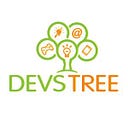The Top Programming Languages for iOS App Development in 2024
In the dynamic world of technology, the landscape of iOS app development is continuously evolving. With each passing year, new trends emerge, technologies advance, and developers seek out the most efficient tools to create cutting-edge applications. As we step into 2024, let’s explore the top programming languages that are shaping the iOS app development scene.
Swift:
Since its introduction by Apple in 2014, Swift has become the go-to language for iOS app development. Designed to be modern, safe, and efficient, Swift offers a powerful yet intuitive syntax that enables developers to write clean and concise code. With features like optionals, generics, and type inference, Swift streamlines the development process and enhances app performance. As Apple continues to invest in Swift, including advancements in SwiftUI for building user interfaces, it remains a top choice for iOS developers in 2024.
Objective-C:
While Swift has gained widespread adoption, Objective-C still holds its ground in the iOS development community. Many legacy projects and established codebases rely on Objective-C, making it essential for developers to have proficiency in both languages. Additionally, certain frameworks and libraries are exclusively written in Objective-C, necessitating its continued relevance in iOS app development.
Flutter:
Google’s Flutter framework has been gaining momentum in the cross-platform development space, offering a single codebase for building applications across iOS, Android, and web platforms. With its fast development cycle, expressive UI, and native performance, Flutter has garnered attention from iOS developers looking to streamline their workflow and reach a broader audience. While not a traditional programming language, Dart, the language used with Flutter, provides developers with the flexibility and power to create feature-rich iOS apps.
React Native:
Facebook’s React Native framework remains a popular choice for iOS app development, allowing developers to leverage their existing knowledge of JavaScript to build native-like experiences. With a vast ecosystem of libraries and community support, React Native enables rapid development and cross-platform compatibility. While it may not offer the same level of performance as Swift or Objective-C, its productivity benefits and extensive tooling make it a compelling option for many iOS projects in 2024.
Kotlin/Native:
Although primarily associated with Android development, Kotlin, with its native capabilities, has been gaining traction among iOS developers. Kotlin/Native allows developers to share code between iOS and Android platforms, reducing development time and effort. With interoperability with Swift/Objective-C and access to native APIs, Kotlin/Native provides a seamless development experience for building iOS apps.
Conclusion:
As we navigate the ever-changing landscape of iOS app development in 2024, the choice of programming language plays a crucial role in determining the success and efficiency of a project. Whether opting for Swift’s performance and safety, embracing cross-platform frameworks like Flutter and React Native, or exploring new avenues with Kotlin/Native, developers have a plethora of options to cater to their specific needs and preferences. By staying abreast of the latest trends and technologies, iOS developers can harness the power of these programming languages to create immersive and innovative experiences for users worldwide.
